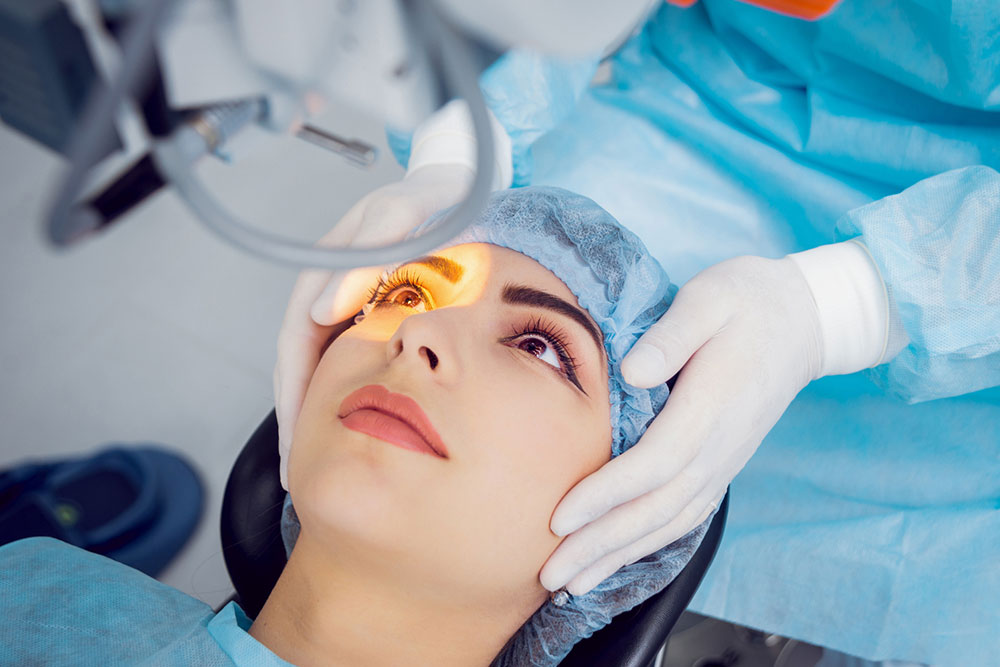
Essential things to know about cataract surgery
Under normal circumstances, the eye’s lenses are clear, letting light into the retina and enabling clear and lucid vision. A cataract develops as a cloudiness over the lens and causes blurry vision. Cataracts may also make it difficult to see at night and dull or pale colors. The only way to treat them is through surgery. Here are a few things about cataract surgery: cost, risks, post-surgery care, etc.
What is cataract surgery?
Cataract surgery is a procedure that involves the removal of the cataract-affected lens. The procedure is done using a manual incision or a laser. The lens is then replaced with an IOL or intraocular lens implant. These are artificial lenses that work the same as the natural lens. However, even after surgery, one may require corrective glasses depending on whether their vision is farsighted or nearsighted, the type of IOL used, and other factors. These glasses are usually required for using a phone or computer since the backlight from these devices can strain the vision.
How much do cataract surgeries cost?
The cost of cataract surgery depends on several factors. One such factor is the type of surgery one needs to undergo, whether it involves a manual incision or laser. The type of IOL will also add to the overall cost. The skill and experience of the surgeon also come into play. Another highly significant factor is whether one has insurance. It is also essential to check whether the insurance covers cataract surgery.
Thus, without insurance coverage, one can expect to pay anything between $3,800 to $6,900 per eye. With Medicare and private insurance, the cost might be a bit less since one may have to take on some out-of-pocket costs. Yet the overall cost with insurance will be far less than without insurance since Medicare and most private insurers cover some cataract surgery costs. However, to avail of insurance benefits, one may undergo a vision test to ascertain the extent of damage to the vision due to cataracts. Also, the type of IOL will affect the insurance coverage.
Are there any risks involved?
Every type of surgery has a certain level of risk involved. Similarly, cataract surgery also has the possibility of a few risks and complications. Some of the known risks of cataract surgery include the following.
- Infection of the eyes
- Bleeding in the affected eye
- The front or the inside of the eye starts to swell up
- The retina starts to become swollen
- The retina starts to lift on the back of the eye and becomes detached
- There is damage to other areas of the eye
- Constant pain that doesn’t go away even with prescriptions
- Vision is still blurry after the surgery
- One starts to see dark shadows, halos, and glare
- There might be partial or complete vision loss in rare cases
- The IOL might get dislocated
It is essential to know that cataract surgery does not cure vision loss due to other eye conditions like diabetic retinopathy, macular degeneration, or glaucoma. Therefore, the risk of complications is higher if one has another eye condition or a health disorder. Cataract surgery will not make the vision better due to these underlying health issues. To ensure that risks are low, treating the other eye problems before proceeding with the cataract surgery is important. In addition, having a conversation with the ophthalmologist or surgeon to be aware of all the associated risks is beneficial.
What is the aftercare process for cataract surgery?
After the cataract surgery, one must follow the aftercare protocol for at least the first two weeks. The primary care doctor will specify the aftercare measures in detail. In addition to the doctor-mandated protocol, one can follow some of these tips.
- Avoid driving on the first day after surgery
- Do not lift any heavy objects or do any physically straining activity
- Don’t swim or use a hot tub to prevent the risk of infection
- Avoid rubbing the eyes after the surgery
- Avoid wearing eye makeup or using any eye creams or moisturizers for a few days post-surgery
- Stay away from dust, dirt, and windy pollen spaces to prevent eye irritation
- Always wear sunglasses when stepping out
How do you find the right doctor for cataract surgery?
It’s not difficult to find the right doctors for cataract surgery. One way is to ask the primary care physician for a referral to a good, experienced specialist. Another is to ask friends and family who have undergone cataract surgery for recommendations for an eye doctor they trust. Additionally, one can search reliable online forums and websites to locate a qualified local eye doctor for cataract surgery needs.




